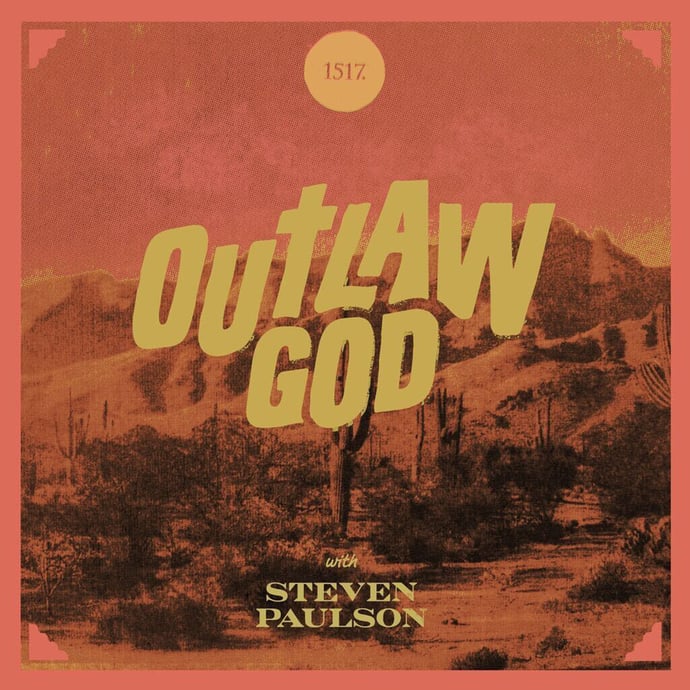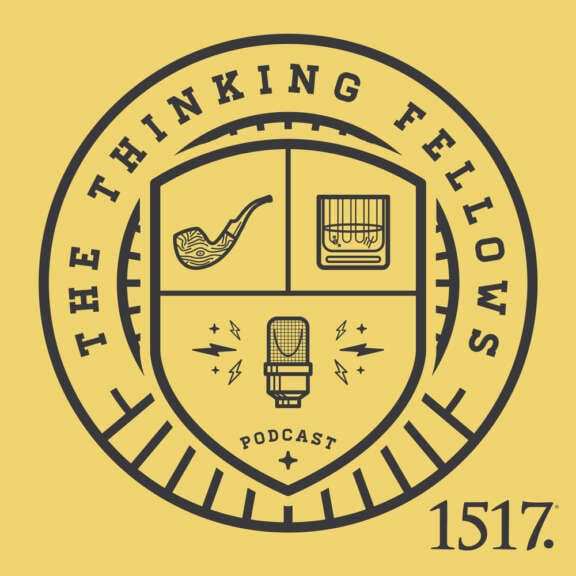We were going to talk about preaching during the pandemic, but then things got even crazier. Ringside meets the Craft of Preaching with Dr. David Schmitt discussing how the preaching task is always the same, but the target changes. And Tyler… where’s the bell?
Podcasts
Each 1517 Podcast is dedicated to delivering Christ-centered content through weekly, monthly, and seasonal audio platforms. Listen online or on your favorite podcasting app.
Author
- All Authors
- Aaron Zimmerman
- Adam Francisco
- Amy Mantravadi
- Blake Flattley
- Bob Hiller
- Bradley Gray
- Brian W. Thomas
- Bror Erickson
- Bruce Hillman
- Caleb Keith
- Chad Bird
- Chris Rosebrough
- Christopher Gillespie
- Cindy Koch
- Craig Donofrio
- Dan van Voorhis
- Daniel Deen
- Daniel Emery Price
- Darrin Sheek
- David Andersen
- David Rufner
- David Zahl
- Debi Winrich
- Delwyn Campbell
- Donavon Riley
- Doug Klembara
- Edward Killian
- Elyse Fitzpatrick
- Erick Sorensen
- Flame
- Grant Klembara
- Gretchen Ronnevik
- Haroldo Camacho
- Jacob Smith
- Jared C. Wilson
- Jeff Mallinson
- Jeffrey Pulse
- Jessica Thompson
- Jim Nestingen
- Joel Fitzpatrick
- Joel Hess
- John Andrew Schreiner
- John Bombaro
- John T. Pless
- John W. Hoyum
- John Warwick Montgomery
- Katie Koplin
- Kelsi Klembara
- Ken Sundet Jones
- Magnus Persson
- Matt Popovits
- Michael Berg
- Michael Horton
- Nick Lannon
- Paul Koch
- Peter Nafzger
- Philip Bartelt
- Raleigh Sadler
- RJ Grunewald
- Robert Kolb
- Rod Rosenbladt
- Ron Hodel
- Sam Leanza Ortiz
- Sarah Condon
- Sarah Crowder
- Scott Davis
- Scott Keith
- Steven Paulson
- Tanner Olson
- Troy Neujahr
- Uwe Siemon-Netto
- Wade Johnston
- William Cwirla
-
Caleb and Dr. Paulson continue to read Isaiah chapter forty-five.
-
The Enemies at the Gate. We conclude our reading and discussion of C.S. Lewis’ speech on Learning in War-time. More reflection on the three enemies, excitement, frustration, and fear.
-
How many presidents does it take to make us question our confidence in this country? No problem, Jesus will be back soon! Just listen to the preachers tell it like it is, and everything will be ok.
-
In this episode, Katie and Gretchen get sidetracked and talk about food and the routines of farm life. That's mainly because eating is something we love to do every day. They address questions like: when are liturgies helpful, and when are they harmful?
-
Know Your Enemy! C.S. Lewis explains why excitement, frustration, and fear can drive us to errs in judgment about ourselves, society, and God.
-
Forget prayer, America needs the use of logic and civilized discourse! So do preachers. What if preachers actually honestly engage the culture instead of cry “martyr”? Ringside meets The Craft of Preaching with special guest Dr. Ben Haupt.
-
Sometimes You Just Have to Hit The Reset and Start Over... Sometimes You Don’t. What happens to the church and society when we are incapable of critical thinking? Can we learn from our failures, and the attacks of our enemies? What happens to society when Christ isn’t publicly preached against sin, death, and the devil.
-
Pastor Hillier Teaches On Mark 6:45-56
-
Steel Our Christian Hearts. We continue with C.S. Lewis’ speech on Learning in War-Time. How important is it for Christians and society to read good books, to learn from our opponents, and to stand up for the truth?
-
During the Reformation, the gift of the gospel was often described as a promise. Caleb and Scott sit down with Steve Paulson to talk about what the promise is, and how it is received.
-
Pastor Hodel Teaches On Ezekiel 33:7-9




